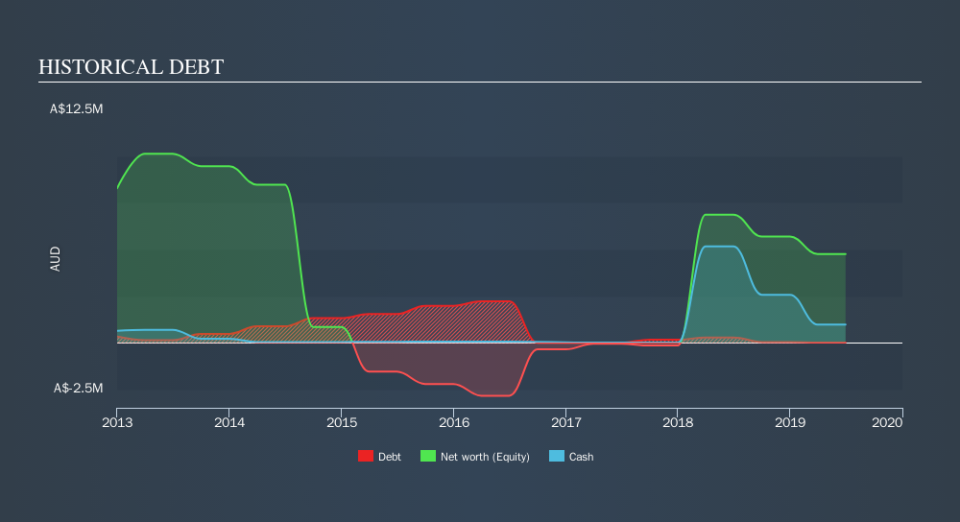Investors Who Bought BIR Financial (ASX:BIR) Shares Five Years Ago Are Now Down 84%

Some stocks are best avoided. We don't wish catastrophic capital loss on anyone. Spare a thought for those who held BIR Financial Limited (ASX:BIR) for five whole years - as the share price tanked 84%. And some of the more recent buyers are probably worried, too, with the stock falling 44% in the last year.
We really feel for shareholders in this scenario. It's a good reminder of the importance of diversification, and it's worth keeping in mind there's more to life than money, anyway.
Check out our latest analysis for BIR Financial
BIR Financial recorded just AU$855,734 in revenue over the last twelve months, which isn't really enough for us to consider it to have a proven product. You have to wonder why venture capitalists aren't funding it. As a result, we think it's unlikely shareholders are paying much attention to current revenue, but rather speculating on growth in the years to come. It seems likely some shareholders believe that BIR Financial will significantly advance the business plan before too long.
As a general rule, if a company doesn't have much revenue, and it loses money, then it is a high risk investment. There is almost always a chance they will need to raise more capital, and their progress - and share price - will dictate how dilutive that is to current holders. While some companies like this go on to deliver on their plan, making good money for shareholders, many end in painful losses and eventual de-listing. BIR Financial has already given some investors a taste of the bitter losses that high risk investing can cause.
BIR Financial had cash in excess of all liabilities of just AU$70k when it last reported (June 2019). So if it has not already moved to replenish reserves, we think the near-term chances of a capital raising event are pretty high. That probably explains why the share price is down 30% per year, over 5 years . The image below shows how BIR Financial's balance sheet has changed over time; if you want to see the precise values, simply click on the image. The image below shows how BIR Financial's balance sheet has changed over time; if you want to see the precise values, simply click on the image.
In reality it's hard to have much certainty when valuing a business that has neither revenue or profit. Would it bother you if insiders were selling the stock? It would bother me, that's for sure. It costs nothing but a moment of your time to see if we are picking up on any insider selling.
A Different Perspective
While the broader market gained around 13% in the last year, BIR Financial shareholders lost 44%. Even the share prices of good stocks drop sometimes, but we want to see improvements in the fundamental metrics of a business, before getting too interested. Regrettably, last year's performance caps off a bad run, with the shareholders facing a total loss of 30% per year over five years. Generally speaking long term share price weakness can be a bad sign, though contrarian investors might want to research the stock in hope of a turnaround. It is all well and good that insiders have been buying shares, but we suggest you check here to see what price insiders were buying at.
BIR Financial is not the only stock insiders are buying. So take a peek at this free list of growing companies with insider buying.
Please note, the market returns quoted in this article reflect the market weighted average returns of stocks that currently trade on AU exchanges.
We aim to bring you long-term focused research analysis driven by fundamental data. Note that our analysis may not factor in the latest price-sensitive company announcements or qualitative material.
If you spot an error that warrants correction, please contact the editor at editorial-team@simplywallst.com. This article by Simply Wall St is general in nature. It does not constitute a recommendation to buy or sell any stock, and does not take account of your objectives, or your financial situation. Simply Wall St has no position in the stocks mentioned. Thank you for reading.

 Yahoo Finance
Yahoo Finance 
